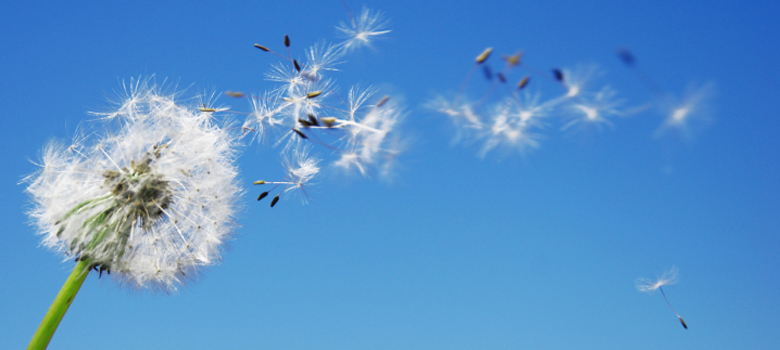
Flowers bloom, trees and grass spring back to life but no sooner do you step into the open-air, your eyes water and itch, your nose runs like a tap and your sneezing won’t subside.
‘What’s this?’ you think to yourself. Chances are you’ve got yourself a nasty case of seasonal allergies.
Seasonal allergic rhinitis, more commonly known as hay fever, is something that affects millions of Australians at this time of year. It occurs when an allergen,, usually pollen, is inhaled by someone with a sensitised immune system.
Hay fever is an allergic reaction that can cause a variety of unpleasant symptoms like sneezing, watery and itchy eyes, itchy throat, and itchy and runny/blocked nose.
Symptoms can rarely, but sometimes, become severe and include sweats, headaches, loss of smell and taste, facial pain caused by blocked sinuses and a spread of itchiness from the throat to the entire face.
These symptoms are a result of our immune system seeing a harmless substance, such as pollen, as harmful and launching an attack, releasing a chemical called histamine that causes the symptoms.
As well as these symptoms, sometimes hay fever can cause other complications and reduce your quality of life in general.
Asthma can be worsened by hay fever. It can cause Asthma symptoms to become worse – coughing, wheezing and tight chest in particular – so make sure you keep your medication on you at all times.
Sufferers of hay fever may have a poor quality of sleep because of the symptoms associated with it.
Prolonged sinus congestion as a result of hay fever may increase the chances of Sinusitis – an infection of the membrane that lines the sinuses.
In children, hay fever is often a factor in a middle ear infection also known as Otitis Media.
But don’t give up hope yet – the good news is that there are many effective treatments for fighting hay fever.
Corticosteroid nasal sprays help reduce the inflammation in the nose, which is the cause of nasal blockage and other symptoms.
Antihistamine medications are useful in controlling sneezing and itching but ask your doctor first if you’re breastfeeding as some can cause you’re child to become irritable and restless.
Certain eye drops will relieve itchy, swollen and watery eyes and you can ask your pharmacist to help you choose the right ones.
Decongestant nasal sprays will provide quick relief with blocked sinuses but should only be used temporarily because prolonged use can damage the lining of the nose.
Immunotherapy exposes a person to increasing amounts of the allergen to improve the body’s tolerance and reduce symptoms but should only be done under medical supervision.
You can’t hide from pollen because it can spread for miles but there are some things you can do to prevent or lessen the symptoms of hay fever.
Keep inside on windy days or after a thunderstorm, smear Vaseline around your nostrils as it will stop the pollen from getting through; choose plants for your garden that are pollinated by birds or bees rather than ones that release seeds into the air, splash your eyes with cold water – this will help flush out pollen, and avoid mowing the lawn in spring.
A doctor can make a diagnosis on the symptoms but they may also perform a blood or skin test to determine what allergen is causing hay fever.
They may also ask for your personal and family history because genetics and lifestyle factors can sometimes cause hay fever.
After a long and cold winter the last thing you need is to be struck down by hay fever, so make sure you try some of the remedies mentioned earlier and if it becomes overwhelming and affects your day to day life too much, seek medical advice.
Comments are closed.